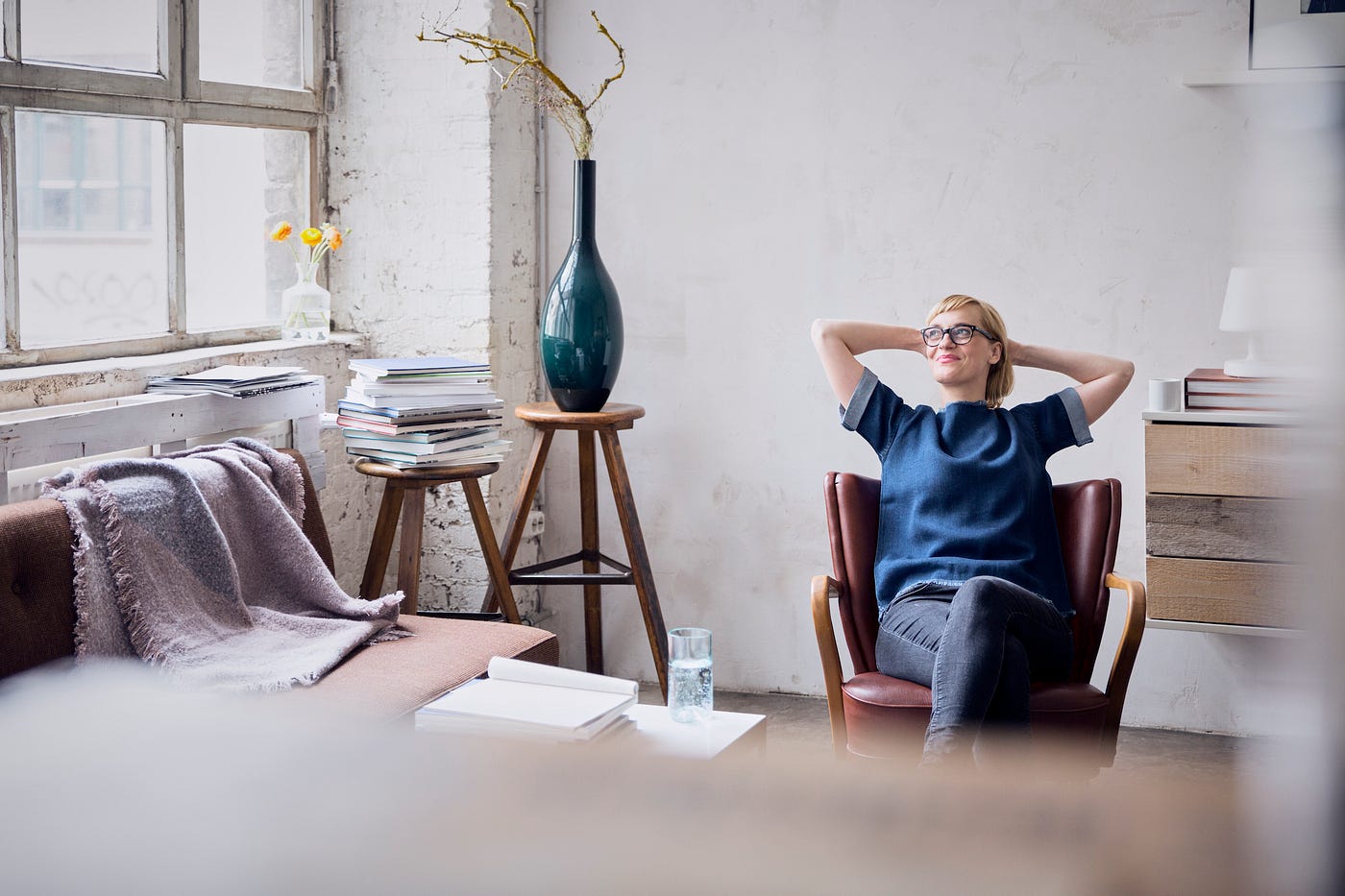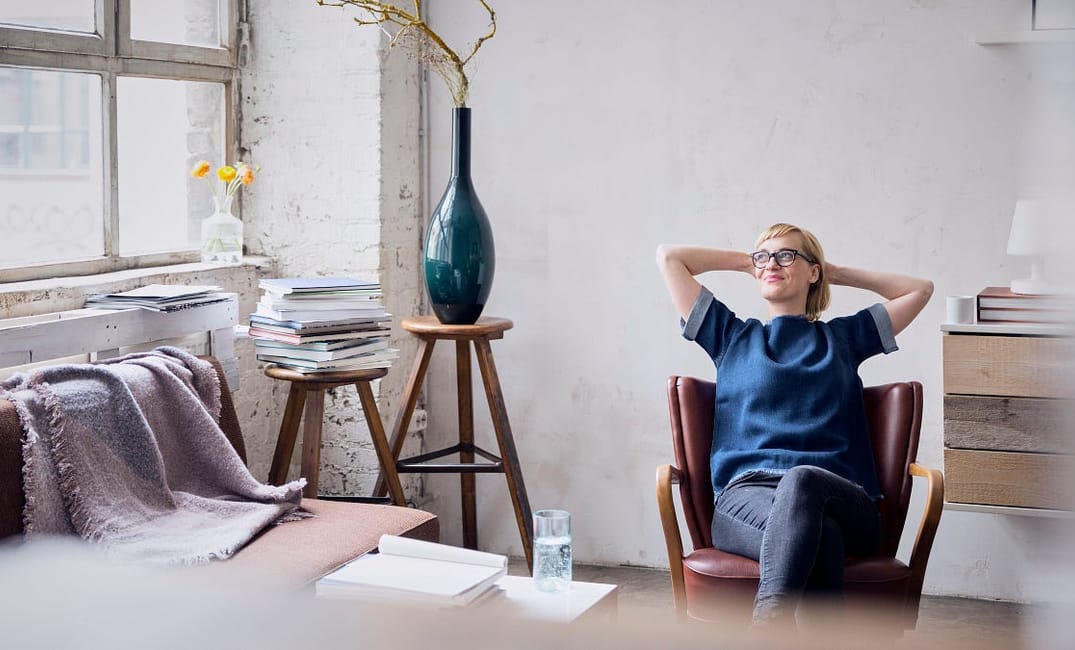
Like most little girls who win the coveted “Nice Award” in kindergarten, I’ve spent many years of adulthood struggling to be honest, set boundaries, and say no. To boyfriends who belittle me, to jobs that don’t work for me, and to my own negative habits. But since March 2020, that’s changed.
The pandemic catalyzed a series of life-altering shifts: I escaped what I hadn’t realized was a toxic relationship and living situation; I moved into my own apartment; and I expanded my creative and editorial projects to be more fulfilled professionally.
Given how many people have lost their livelihoods — and their actual lives — throughout the pandemic, I want to recognize the extreme privilege I have to be able to talk about any positive outcomes I’ve experienced over the past year. The massive changes I’ve undergone took hard work and came with pain. Despite, or perhaps because of, the emotional trauma and raw introspection I went through, I now feel stronger than ever in March 2021.
I’ve realized the main culprit: forced time alone.
In many ways, the pre-pandemic world both enabled and distracted me. I was living with a partner, working an office job in San Francisco, freelancing, and attending school. With whatever time I had left, I was preoccupied with friends, partying, trash TV, studying, and my romantic relationship. This all allowed me to avoid looking inward and instead focus on external stimuli pummeling my senses.
I voluntarily overworked myself, but constantly made self-deprecating jokes about how “lazy” I was, even though I knew that was a lie. I had jobs and school. I commuted and did homework and wrote and made rent — all the while putting my partner’s needs above my own and internalizing his occasional demeaning remarks.
Come on, just drop out of school and apply for this job instead. Everyone knows your school is a joke anyway.
I’m older and make more money, so I should make all the decisions.
Don’t be poor, it’s not cool.
You need to go out more. It’s not healthy to be such a homebody.
Now, remembering what came out of my partner’s mouth completely enrages me. But at the time, I swallowed these statements out of fear of losing our relationship. Looking back, I can see now that I was completely miserable.
Without realizing it, my job, too, was a source of misery. While I was happy to finally be in a full-time communications role, I had to be “on” all the time in a public-facing, front desk position. Once I started working from home I realized how stressed out, anxious, and angry I had been working with crowds.
In the days leading up to the shutdown, I grappled with near-constant existential crises. I got good grades, I had a cool job, and I had a partner. I was supposed to be happy. But I wasn’t. Dread settled in my bones, and nothing felt right.
It was during this time, as news of the virus was spreading, that I discovered my partner was just as unhappy as I was. One night after work, he hastily broke up with me in the kitchen, but we still decided to remain friends and continue living together.
On the night the Bay Area’s shelter-in-place went into effect, he and I had a major falling out due to fundamental differences in how we handled precautions around Covid — and each other. I moved out shortly after that, leaving the black walls (and stray VHS tapes) behind.
Though it was painful to experience, that was just one moment that put me on the right path. Ultimately, I had been in denial. The pandemic forced me out of it. I had to address problems, rather than push them away.
The pandemic caused my role to shift from 40 hours a week to 20, which sparked me to take on more freelance assignments to fill the gaping holes in my reduced schedule, guiding me to more fulfilling work. Becoming a freelancer has allowed me to become the type of writer — and person — I’d always hoped to become.
Now when I tell myself I’m grateful, I truly mean it.
I’ve also developed healthier habits for managing my emotions. Instead of seeking out male validation or drinking one too many glasses of wine, I tried something new and sold my belongings in exchange for synths and drum machines. Experimenting and recording alone in my room was just a hobby and a way to process pain, but six days after releasing my first demo, a Colombia-based label offered to release my next real album on vinyl. Now, I’m able to focus on the idea of building community and touring in Latin America after getting vaccinated, something I never imagined or planned to do. At the risk of sounding like a women’s self-help book, it makes me feel empowered, and that’s a feeling I realize I’ve never gleaned from a romantic partnership.
I’m still recovering from that first night of our shutdown and everything that came before it. But for the first time in my life, I’ve admitted that I need help, time, and space to heal, and that’s allowed me to create boundaries in both my professional and personal world — as well as explore healthier creative outlets. I’m looking into therapy. I’m speaking up when I get upset. I’m thriving in my own little synth oasis. And perhaps most importantly, I’m learning it’s okay to admit that you’re unhappy and to want change, it’s okay to have needs, and it’s okay to be vulnerable. It can, in fact, make you stronger.
Sign up for The Bold Italic newsletter to get the best of the Bay Area in your inbox every week.







